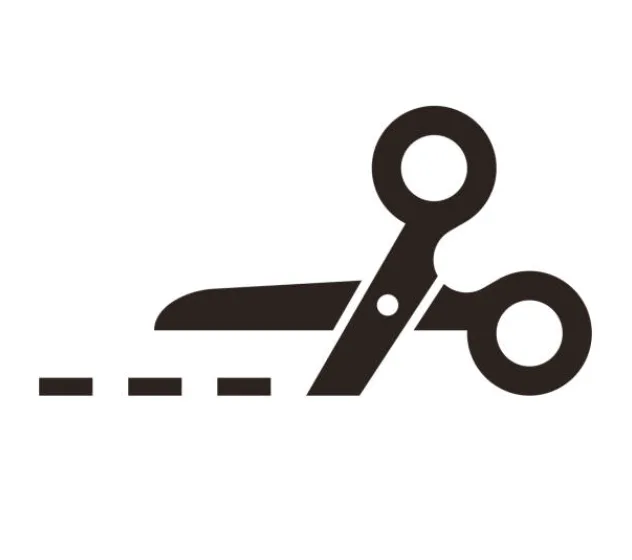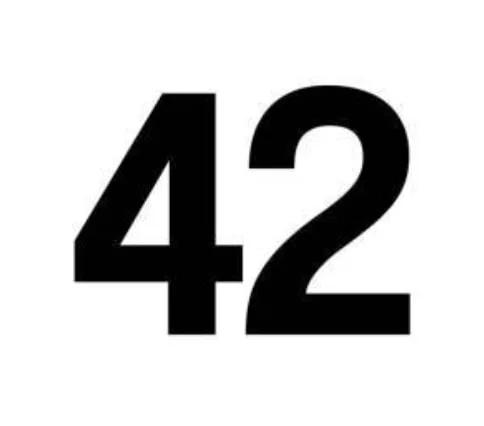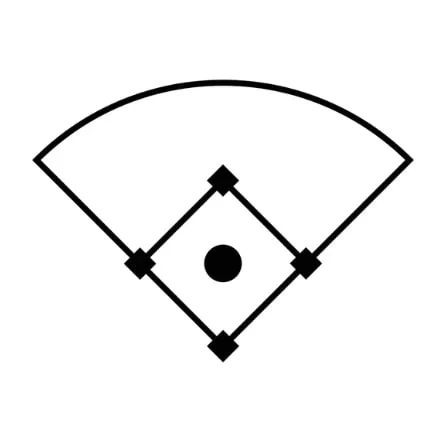Refractor Cards utilize a special printing technology to create a unique visual effect. The cards refract light to create a prism or rainbow-like look and colorful shine. Most products include multiple types of refractors, each of which is named forby their different colors (Green Refractor, Blue Refractor, etc.). Each color is printed to a different quantity, and they tend to be numbered.
Refractor cards are more rare than common cards in the set, which means that collectors assign them greater value.
1st Bowman®
1st Bowman®
A player's 1st Bowman card is their first professional baseball card, released before their official RC.
Read More
Acetate
Acetate
A premium trading card material made from transparent or semi-transparent plastic, known for its sleek and durable design. Acetate cards often feature striking visual effects, such as layered graphics or etched patterns, that give the card a distinctive see-through appearance. Commonly found in high-end…
Read More
Blaster Box
Blaster Box
A blaster box is a type of retail box commonly distributed at large retail stores like Walmart and Target (as opposed to Hobby shops or online exclusives). Blaster boxes have anywhere from 4 to 15 packs and are an accessible and exciting way to engage in…
Read More
Box Loader
Box Loader
Box loaders – or toppers – are special, single cards or sets of cards that are only available as inserts in hobby boxes. Box loaders are usually larger than standard-size cards and are meant as a unique opportunity for collectors to engage in the…
Read More
Brick-and-Mortar
Brick-and-Mortar
Brick-and-Mortar refers to Hobby Shops. These Hobby Shops represent the foundation of collecting and continue to be the most critical institutions in the Hobby. Even as the Hobby develops and grows digitally, the brick-and-mortar stores remain important industry collaborators and cultural custodians.
Read More
Card Sleeve
Card Sleeve
These are plastic sleeves used to protect cards. The most popular kind – Penny Sleeves – get their name for being inexpensive: they cost a penny.
Read More
Card Stock
Card Stock
Card stock refers to the type of paper or material used to produce trading cards. Card stock can vary in thickness, depending on the set and type of card. Thicker card stock is often used for higher-end or premium products. The thicker stock provides…
Read More
Chase Card
Chase Card
Any given set of cards will include a limited number of chase cards, which are highly coveted by collectors. Some examples of chase cards include: autographed cards, rare parallels, rare rookie cards, relic cards, and insert cards. Unlike common base cards, chase cards are more rare and valuable. When opening…
Read More
Chasing the Rainbow
Chasing the Rainbow
A modern collecting phenomenon where you collect different color parallel cards of a player.
Read More
Chrome® Sapphire
Chrome® Sapphire
Premium design treatment of Topps Chrome® products that debuted in 2016. Sapphire cards elevate chromium stock cards with blue highlights and sapphire refractor foil boards, providing collectors with a premium collecting experience across multiple Topps and Bowman Chrome brands. Stay current on all Topps…
Read More
Collation/Collating
Collation/Collating
Collation/Collating is the organizing and assembling of trading cards into complete sets or subsets. Typically done by collectors or dealers, this process involves gathering individual cards and arranging them according to specific criteria, most often using checklists. Collating can be challenging and time-consuming, particularly…
Read More
Combination Card
Combination Card
Combination cards feature two or more players, teams, or other elements on a single card. These cards come in various designs: one player on each side, players arranged in a unique design on the card, dual or triple autos, and even relic cards receive…
Read More
Common Card
Common Card
Commons are the least rare, and therefore least valuable, cards in any given set. A typical common would be the base card of a non-rookie player. Commons are the opposite of chase cards and hits.
Read More
Completist
Completist
A collector who is driven to possess every card of a given set, year, team, player, or category. If they collect 2021 Topps Chrome Baseball, the completist will hunt down every card from that checklist – including every base card, parallel, auto, etc. For many collectors, common cards from a given…
Read More
Cut Signature
Cut Signature
A cut signature is an authentic, handwritten signature that has been removed or clipped from a larger, original document—such as a check, letter, or photograph. It is frequently used to embed historical autographs into trading cards, creating valuable one-of-one collectibles.
Read More
Rookie Debut Patch
Rookie Debut Patch
Fanatics introduced this uniform patch for 2023 MLB prospects and rookies playing in the first MLB game. The debut patch is worn on the jersey in the player’s first-ever MLB game. The Rookie Debut Patch was turned into the innovative Rookie Debut Patch Autograph…
Read More
Error Card
Error Card
A card that contains a mistake or error resulting in a variation (aka VAR). Error cards may include misspellings, statistical errors, incorrect photos, or other mistakes. When an error is corrected by the manufacturer, the error cards can be far more rare than the common,…
Read More
Event-Worn
Event-Worn
A piece of memorabilia that has been worn by a player at a non-specific game or event. For example, a jersey or jersey patch that was worn at a rookie’s signing session. This memorabilia is then embedded in a trading card. (See also: Game-Worn)
Read More
Factory Set
Factory Set
Factory Set refers to a specific way to sell baseball cards. Instead of random packs being placed in a retail box or hobby box, a full set is packaged and sold in a single box. Factory sets first appeared in the 1980s due to the popularity of hand collated…
Read More
Fanatics Live
Fanatics Live
Fanatics Live is a Hobby platform innovating the breaking industry with more exciting shows, unprecedented athlete access, and the most robust trust and safety policies in the business.
Read More
Flagship
Game-Used
Game-Used
A piece of memorabilia that has been used in a professional sporting event. These items can include, but are not limited to: bats, jerseys, fielding gloves, batting gloves, bases, etc. Baseball memorabilia is typically ‘MLB authenticated’, which means that Major League Baseball guarantees the…
Read More
Glossy Set
Glossy Set
Glossy sets refer to cards featuring a shiny, reflective coating. This coating is achieved through printing tech, such as Chrome cards printed on chromium paper. Glossy sets are considered more visually appealing than regular non-glossy sets, and they are often produced in limited quantities,…
Read More
Grading
Grading
Many collectors will submit their cards to a third-party service to evaluate and assess their physical condition. This third-party service will assign a numerical grade between 1-10; the higher the grade, the better the condition. Cards with higher grades tend to fetch higher prices…
Read More
High Number/High Series
High Number/High Series
The subset of cards within a particular set released later in the production run, typically with a higher number.
Read More
Hit
Hit
A modern hobby term referring to higher-valued chase cards. Autographs, relic cards, insert cards, and coveted rookie cards are all commonly understood to be hits. In some cases, manufacturers will guarantee a certain number of “hits per box,” which means that a specific number of chase cards have been…
Read More
Hobby Box
Hobby Box
Hobby boxes are high-end boxes that typically feature a greater number of chase cards, which makes them more expensive/valuable. Unlike retail boxes, which are widely distributed in big box stores (think: Walmart or Target), hobby boxes are usually distributed exclusively through hobby shops or online.
Read More
Hologram Card
Hologram Card
A hologram card features a holographic image or design element. The hologram can be the primary focus of the card or be used as an accent or security feature. Holograms refract light to produce three-dimensional images or shiny, prismatic effects that change depending on…
Read More
Inscription
Inscription
When a player signs an autograph, they sometimes include an additional inscription along with their name. Some popular inscriptions include the player’s nickname, Hall of Fame induction year, specialized notation (e.g. statistical achievement), or other personalized message.
Read More
Insert Card
Insert Card
Insert cards refer to any non-base and non-parallel cards in a trading card set. These cards typically have their own themes, names, designs, and numberings.
Read More
Jackie Robinson
Jackie Robinson
Jackie Robinson, born January 31, 1919, in Cairo, Georgia, was a groundbreaking American baseball player who broke Major League Baseball’s color barrier with the Brooklyn Dodgers in 1947. Before the MLB, he excelled in multiple sports at UCLA and briefly played for the Kansas…
Read More
Jersey Card
Jersey Card
A trading card that contains a small piece – or “swatch” – of a player’s jersey. Unlike Patch Cards, which are taken from specific parts of the jersey (i.e. the logo or number), jersey swatches are typically single-color and consist of basic mesh or…
Read More
Jersey Number Card
Jersey Number Card
A jersey number card refers to a couple of different types of covetable cards. One example of a jersey number card is a trading card that includes a small piece of a player’s jersey with the player’s uniform number. Additionally, a jersey number card could…
Read More
Josh Gibson
Josh Gibson
Josh Gibson, born on December 21, 1911, was an elite baseball catcher and one of the greatest hitters in history. He starred in the Negro Leagues for nearly two decades, playing for teams like the Homestead Grays and Pittsburgh Crawfords. Gibson is now recognized…
Read More
Junk Wax Era
Junk Wax Era
This refers to the period in the late-80s and early-90s where card manufacturers flooded the market with product, resulting in an massive, supply-side imbalance of supply and demand. Most cards and boxes from the Junk Wax Era are worth significantly less than similar cards…
Read More
Larry Doby
Larry Doby
Larry Doby was the first African-American to play in the American League and the second to play in the major leagues after Jackie Robinson. Beginning his career with the Newark Eagles in the Negro National League, Doby also became the first African-American to play…
Read More
Lenticular
Lenticular
A visual effect that gives a card 3D-depth and movement. When you shift a lenticular card from side to side, the image appears to move.
Read More
Liquid Silver
Liquid Silver
First introduced in the 2024 Diamond Icons set, Liquid Silver represents a breakthrough in card design, blending artistry with cutting-edge innovation. Liquid Silver card technology from Topps combines sculpted elements, fresnel lens effects, and holographic patterns to create visually stunning and tactile cards. The…
Read More
Low Numbers/Low Series
Low Numbers/Low Series
Cards from the first series produced for a set in a given year
Read More
Mini Cards
Mini Cards
Mini cards are any card smaller than the standard trading card size of 2.5 inches by 3.5 inches. The size of a mini card can vary, but it is typically around 2 inches by 3 inches or smaller. Mini cards are often used as…
Read More
Monte Irvin
Monte Irvin
Monte Irvin was a talented outfielder who excelled in both the Negro Leagues and Major League Baseball (MLB). He began his career with the Newark Eagles in the 1930s, becoming a standout player. In 1949, he joined the New York Giants, making an immediate…
Read More
Multi-player Card
Multi-player Card
A special type of card featuring two or more different players.
Read More
Negro Leagues
Negro Leagues
The Negro Leagues were professional baseball leagues established by African-American players due to racial segregation in the late 1800s and early 1900s. Excluded from integrated teams by racism and Jim Crow laws, black players created their own teams, frequently traveling across the country to…
Read More
Negro Leagues Baseball Museum
Negro Leagues Baseball Museum
The Negro Leagues Baseball Museum (NLBM) in Kansas City, Missouri, established in 1990, celebrates and preserves the history of African American baseball and its impact on American society. The museum features exhibits with photographs, artifacts, and multimedia presentations that highlight legendary players like Satchel…
Read More
On-Card Auto
On-Card Auto
With on-card autos, the player puts their signature directly on the card, rather than on a sticker affixed to the card (a sticker auto). Many collectors prefer on-card autos because they offer a closer connection to the player and are more aesthetically pleasing. Generally speaking,…
Read More
One of One
One of One
A 1/1 card is the rarest type of trading card, making it especially appealing to collectors. Some of the most valuable cards in existence today are 1/1 cards.
Read More
Patch Card
Patch Card
Cards that specifically feature a multi-colored jersey patch embedded in the card itself. Sometimes the jersey patches are game-used, but not always.
Read More
Personal Collection
Personal Collection
A modern hobby term to describe cards that a collector specifically intends to keep for themselves.
Read More
Player Collecting
Player Collecting
Player collecting is a sports card strategy where collectors focus on a single athlete, gathering every card of that player: base, parallels, inserts, rookies, autographs, and even rare regional issues. The goal is to build a complete collection of one athlete’s entire card history.…
Read More
Pop Report
Pop Report
A pop report is a published census showing the total number of cards graded by a third-party grading company. For any given card in any given grade (e.g. Mint 10), there will be a published pop report showing how many times the grading service…
Read More
Post-War Cards
Post-War Cards
A post-war trading card refers to trading cards produced after World War II. This term often distinguishes between vintage, pre-war cards and the birth of the modern Hobby. In contrast to pre-war cards, post-war trading cards were usually produced in much larger quantities, making…
Read More
Pre-War Cards
Pre-War Cards
A pre-war trading card refers to any trading card produced before World War II – from the 19th century to 1939. This term is commonly used in the collecting community to distinguish between vintage cards made before and after this period. These cards were…
Read More
Printing Plate
Printing Plate
A printing plate is the thin metal plate used to print cards. They typically come in four different colors: cyan, magenta, yellow, and black. Printing plates are often offered as one-of-one collectibles for each color.
Read More
Prospecting
Prospecting
Prospecting is collecting cards of young players who have yet to reach the MLB. In many ways, Prospecting is all about finding as many cards of potential future All Stars as possible – imagine collecting the first-ever card of Albert Pujols, Mike Trout, or Juan Soto. For…
Read More
Random Break
Random Break
A random break is a breaking event where the contents of a sealed box or case of cards are divided randomly among participants. Each participant typically pays a fixed fee to enter the break by purchasing a “slot” or “spot.” The collector or dealer…
Read More
Redemption Card
Redemption Card
With redemption cards, the owner exchanges or “redeems” the card with the manufacturer and receives a hit (typically, autographed) card at a later date. Modern redemption cards feature a code printed on cardstock, and the owner redeems their card by simply submitting that code to the manufacturer.
Read More
Refractor®
Refractor®
Refractor Cards utilize a special printing technology to create a unique visual effect. The cards refract light to create a prism or rainbow-like look and colorful shine. Most products include multiple types of refractors, each of which is named forby their different colors (Green…
Read More
Relic Card
Relic Card
A card that contains a piece of memorabilia embedded in the card itself – from a swatch of fabric from a player’s jersey to a piece of game-used baseball. There are Dual and Triple Relic cards, which include more than one piece of memorabilia on a…
Read More
Retail Box
Retail Box
These are lower-priced boxes that are widely distributed and available in large retail stores like Walmart or Target. A retail box may have the same base set as a higher-end hobby box, but will have fewer guaranteed hits and chase cards.
Read More
RetroFractor
RetroFractor
The RetroFractor celebrates historic players across 100 years of baseball who never received their 1st Bowman card.
Read More
Rickwood Field
Rickwood Field
Rickwood Field, located in Birmingham, Alabama, is the oldest professional baseball park in the United States, having opened in 1910. Originally home to the Birmingham Barons and the Birmingham Black Barons of the Negro Leagues, it hosted many baseball legends, including Satchel Paige, Willie…
Read More
Rookie Card
Rookie Card
Rookie cards refer to players’ first cards once they make their Major League debut. In most cases, rookie cards are stamped with some kind of designation (e.g. “RC”) on the front or back, and that designation will appear on the card that same year…
Read More
Rookie Cup
Rookie Cup
Since 1959, Topps has selected rookies for the “All-Star Rookie Team” – a player for each position, including a Designated Hitter (DH) and Relief Pitcher (RP). Players selected for the team have the “Rookie Cup” logo included on their next season’s card. Rookie Cup…
Read More
Satchel Paige
Satchel Paige
Satchel Paige, born Leroy Robert Paige on July 7, 1906, in Mobile, Alabama, was a legendary American baseball pitcher. He is widely regarded as one of the greatest pitchers of all time, particularly known for his time in the Negro Leagues and later in…
Read More
Set Collector
Set Collector
Collector who seeks out every card in a set.
Read More
Short Print
Short Print
A card that is printed in lower quantities than other cards in the same set. Short prints, or super short prints (SSPs), are much more scarce than common cards, and thus more valuable to collectors.
Read More
Sketch Card
Sketch Card
Sketch Cards are one-of-one, hand-drawn cards created by the licensed artist from a particular set. They are the same size as regular trading cards and include the artist’s signature.
Read More
Standard Card Size
Standard Card Size
Topps established the standard size for modern trading cards as 2.5 inches by 3.5 inches (6.4 cm x 8.9 cm). This size became standard because it was small enough to fit easily into card-collecting albums or sleeves yet large enough to accommodate detailed artwork…
Read More
Starter Set
Starter Set
Starter sets provide collectors with a basic introduction to the Hobby. These sets typically include a selection of cards representing an overall set or theme and additional items such as binders, sleeves, or other accessories used to organize and protect the cards. Starter sets…
Read More
Sticker Auto
Sticker Auto
With sticker autos, the player autographs a sticker or label and then the sticker is applied to the trading card. These differ from on-card autos, where the player signs the card directly.Some collectors prefer sticker autos because they result in fewer indentations on the surface…
Read More
Sticker Card
Sticker Card
Sticker cards are just that: stickers that can be peeled off from the back. The most famous examples of sticker cards are Garbage Pail Kids and Wacky Packages.
Read More
Superfractor™
Superfractor™
A superfractor is the rarest type of refractor card. Superfractors are short-printed, 1-of-1 cards, which means that for any given card, there will be only one superfractor of that card in the entire product. Because they are 1/1, superfractors are among the most desired and valuable cards…
Read More
Team Break
Team Break
Team breaks – also known as “Pick Your Team” breaks – refer to breaks where collectors split the contents among the participants according to a predetermined set of rules. For example, in a typical baseball card team break, collectors purchase a team (or teams)…
Read More
Team Collecting
Team Collecting
Team Collecting Guide
Read More
Three Kings
Three Kings
Collecting the Three Kings represents a new way of collecting tied to the debut of the Rookie Debut Patch Auto (RDPA) in 2023. A collector must have an MLB player’s 1st Bowman SuperFractor auto, Topps Chrome Rookie Card SuperFractor auto, and their RDPA to complete the Three Kings set. Eric Mandelkern’s…
Read More
Tiffany Sets
Tiffany Sets
Topps issued high-end sets of cards from 1984 to 1991 – including the 1989 and 1990 Bowman Baseball sets. Tiffany sets were sold exclusively as complete sets. Officially, these sets were known as “Collectors’ Editions,” but the Hobby would later adopt the “Tiffany” sobriquet…
Read More
True Refractor
True Refractor
True Refractor refers to the standard refractor parallel of a base card or base autograph, especially in sets like Bowman Chrome and Topps Chrome. Unlike color parallels or patterned variations, a true refractor mirrors the original base card in both pose and layout, offering a clean, rainbow-finish…
Read More
Uncut Sheet
Uncut Sheet
An uncut sheet refers to a single sheet of trading cards that has not been separated into individual cards. Trading cards aren’t printed individually. Instead, cards are printed out on sheets and then separated. These sheets can include as few as two or three…
Read More
Variation
Vintage Collecting
Vintage Collecting
This type of collecting only focuses on vintage cards dating from around 1979 or earlier. The cool part of vintage collecting is that it combines Set, Player, and Team collecting under a single pursuit. Equal parts nostalgia and anthropology, Vintage Collecting is all about…
Read More
Willie Mays
Willie Mays
Willie Mays, a legendary baseball player, began his career with the Birmingham Barons of the Negro American League at 16. The New York Giants signed him in 1950, and he debuted in 1951, winning the NL Rookie of the Year award. After serving in…
Read More













